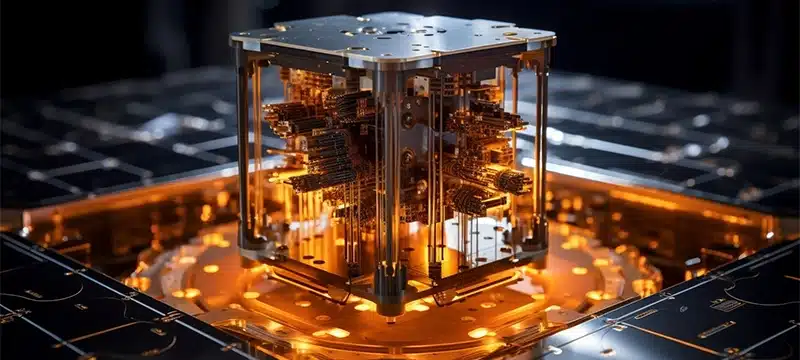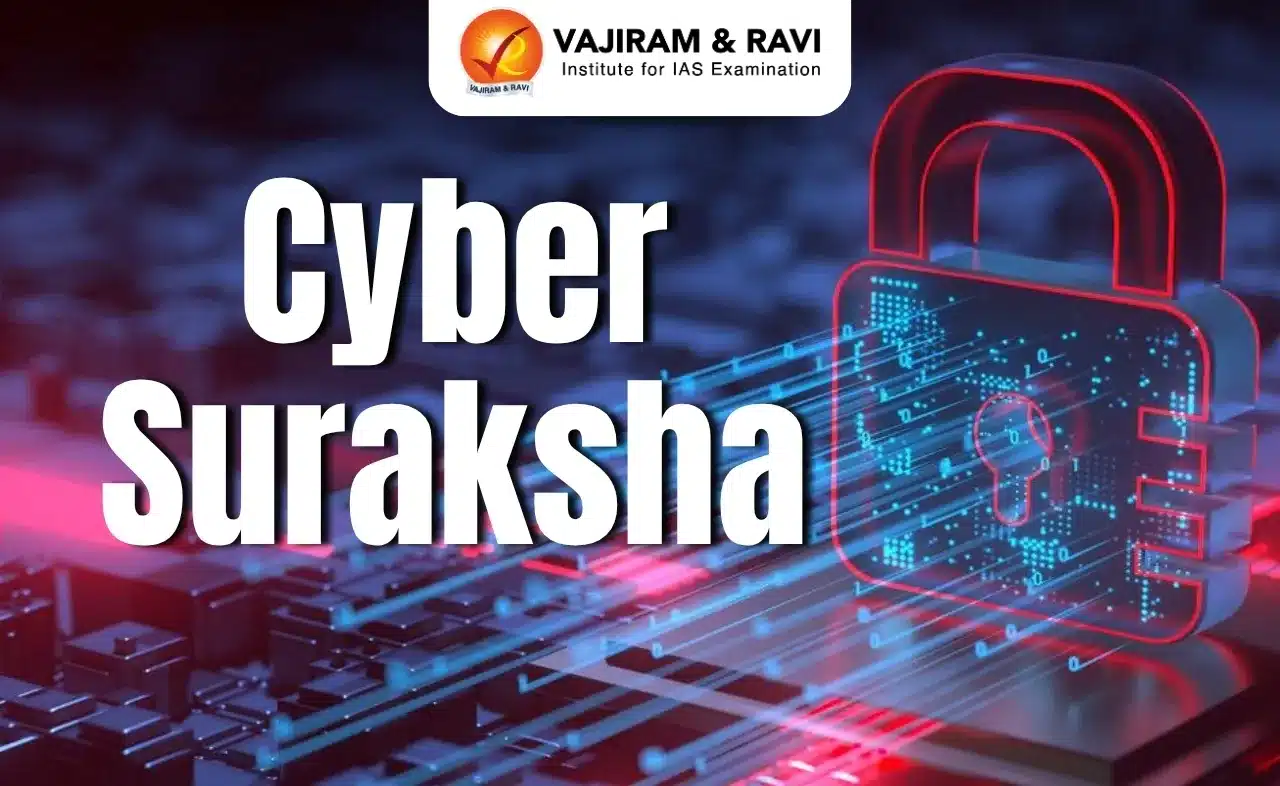About Quantum Computing
- Quantum computing is a cutting-edge technology leveraging the principles of quantum mechanics to solve problems too complex for traditional computers.
Quantum Mechanics
- A branch of physics deals with the behaviour of particles such as atoms, electrons, and photons at molecular and sub-molecular levels.
- It introduces phenomena like superposition and entanglement, enabling quantum computing’s revolutionary capabilities.
Key Features
- Fundamentally Different from Classical Computing: Classical computers process information in binary bits (0 or 1).
- Quantum computers use quantum bits (qubits), which can exist in states 0, 1, or both simultaneously (superposition).
- Superposition: It enables qubits to hold multiple states at once, allowing quantum computers to perform exponentially more calculations compared to classical systems.
- Example: Like a spinning coin, a qubit can represent both heads and tails until measured.
- Entanglement: A phenomenon where qubits remain intrinsically linked, regardless of distance.
- Changing the state of one qubit instantly affects its entangled counterpart, enhancing computational speed.
- Unprecedented computational power: Quantum computers can solve problems that are impossible or time-prohibitive for classical systems, such as cryptographic algorithms, simulations, and optimization tasks.
Milestones in Quantum Computing
- Origin: Proposed in 1982 by Richard Feynman to simulate quantum systems, as classical computers struggled with such complexity.
- Breakthrough algorithms: Shor’s Algorithm (1994): Revolutionized cryptography by factoring large numbers exponentially faster than classical methods.
- Technological advancements
- IBM Q System One (2019): The first circuit-based commercial quantum computer.
- Google Sycamore Processor (2019): Demonstrated quantum supremacy by solving a task in 200 seconds, which would take classical supercomputers 10,000 years.
- Google Willow Quantum Chip (2023): Introduced scalable error-corrected qubits, finishing calculations in minutes that would otherwise take billions of years for classical systems.
Q1. What is Quantum Technology?
Quantum technology leverages the principles of quantum mechanics, such as superposition, entanglement, and quantum tunnelling, to develop advanced tools and applications.
Last updated on June, 2025
→ UPSC Notification 2025 was released on 22nd January 2025.
→ UPSC Prelims Result 2025 is out now for the CSE held on 25 May 2025.
→ UPSC Prelims Question Paper 2025 and Unofficial Prelims Answer Key 2025 are available now.
→ UPSC Calendar 2026 is released on 15th May, 2025.
→ The UPSC Vacancy 2025 were released 1129, out of which 979 were for UPSC CSE and remaining 150 are for UPSC IFoS.
→ UPSC Mains 2025 will be conducted on 22nd August 2025.
→ UPSC Prelims 2026 will be conducted on 24th May, 2026 & UPSC Mains 2026 will be conducted on 21st August 2026.
→ The UPSC Selection Process is of 3 stages-Prelims, Mains and Interview.
→ UPSC Result 2024 is released with latest UPSC Marksheet 2024. Check Now!
→ UPSC Toppers List 2024 is released now. Shakti Dubey is UPSC AIR 1 2024 Topper.
→ Also check Best IAS Coaching in Delhi
























